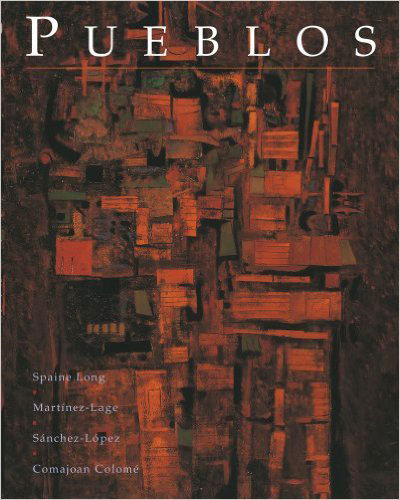By Lourdes Sánchez-López, S. Spaine Long, Ana Martínez-Lage, and Llorenç Comajoan Colome
Pueblos is a complete Intermediate Spanish program that systematically presents culture within the context of the historical and political forces that have shaped and continue to shape the Spanish-speaking world.
 Grammar, vocabulary, and content are merged in a way that emphasizes communication, cultures, comparisons, connections and communities and a comprehensive historic-to-contemporary view of the Spanish-speaking populations and civilizations. The word pueblos refers to places, settlements, civilizations, and nations, but also to groups of people who speak Spanish. Pueblos focuses on how the world's Spanish-speaking cultures and civilizations came into being and developed throughout time.
Grammar, vocabulary, and content are merged in a way that emphasizes communication, cultures, comparisons, connections and communities and a comprehensive historic-to-contemporary view of the Spanish-speaking populations and civilizations. The word pueblos refers to places, settlements, civilizations, and nations, but also to groups of people who speak Spanish. Pueblos focuses on how the world's Spanish-speaking cultures and civilizations came into being and developed throughout time.Features and benefits:
- Content-based program supports students in using the target language to learn varied subject matter as they improve their language proficiency and linguistic accuracy.
- Complete cultural and historic context focuses on the development of the world's Spanish-speaking cultures and civilizations, linking past, present and future events in Spain, the Caribbean, Mexico, Central America, South America, the Philippines, and Equatorial Guinea.
- Authentic readings enable students to encounter targeted vocabulary and grammar in a content- rich framework of culture and history.
- Historical timelines provide a visual tool to help students sequence events and view historical information, enabling them to better understand the evolution of the Spanish-speaking world.
- Historical approach orients the learner along a chronological timeline provided at the beginning of each chapter and links past, present, and even future events to reflect the interconnected and organic way in which civilizations develop.
- Structured, culminating projects and task-based assignments ask students to synthesize and use vocabulary, grammar, culture, and exploration from a personal point of view.